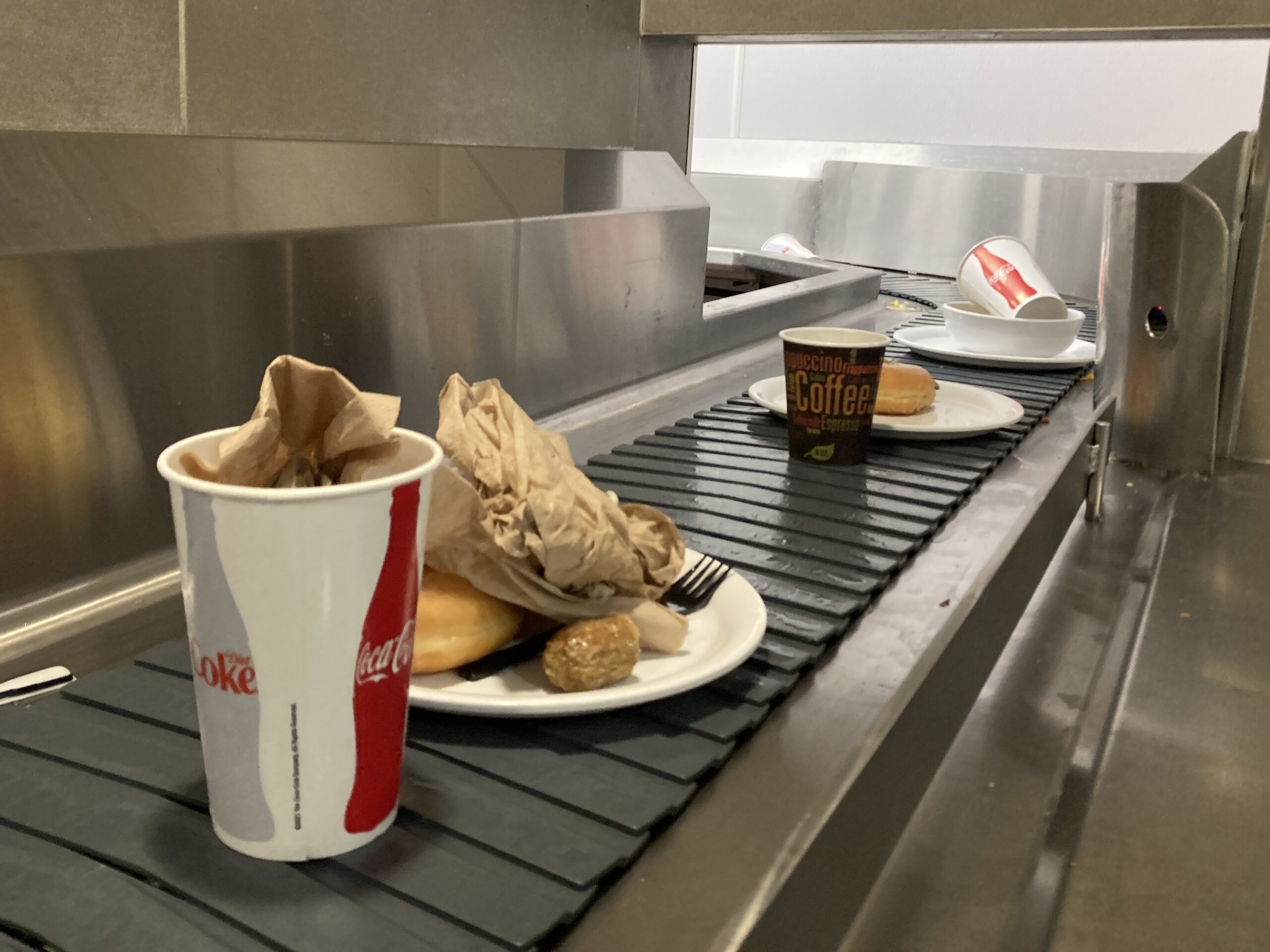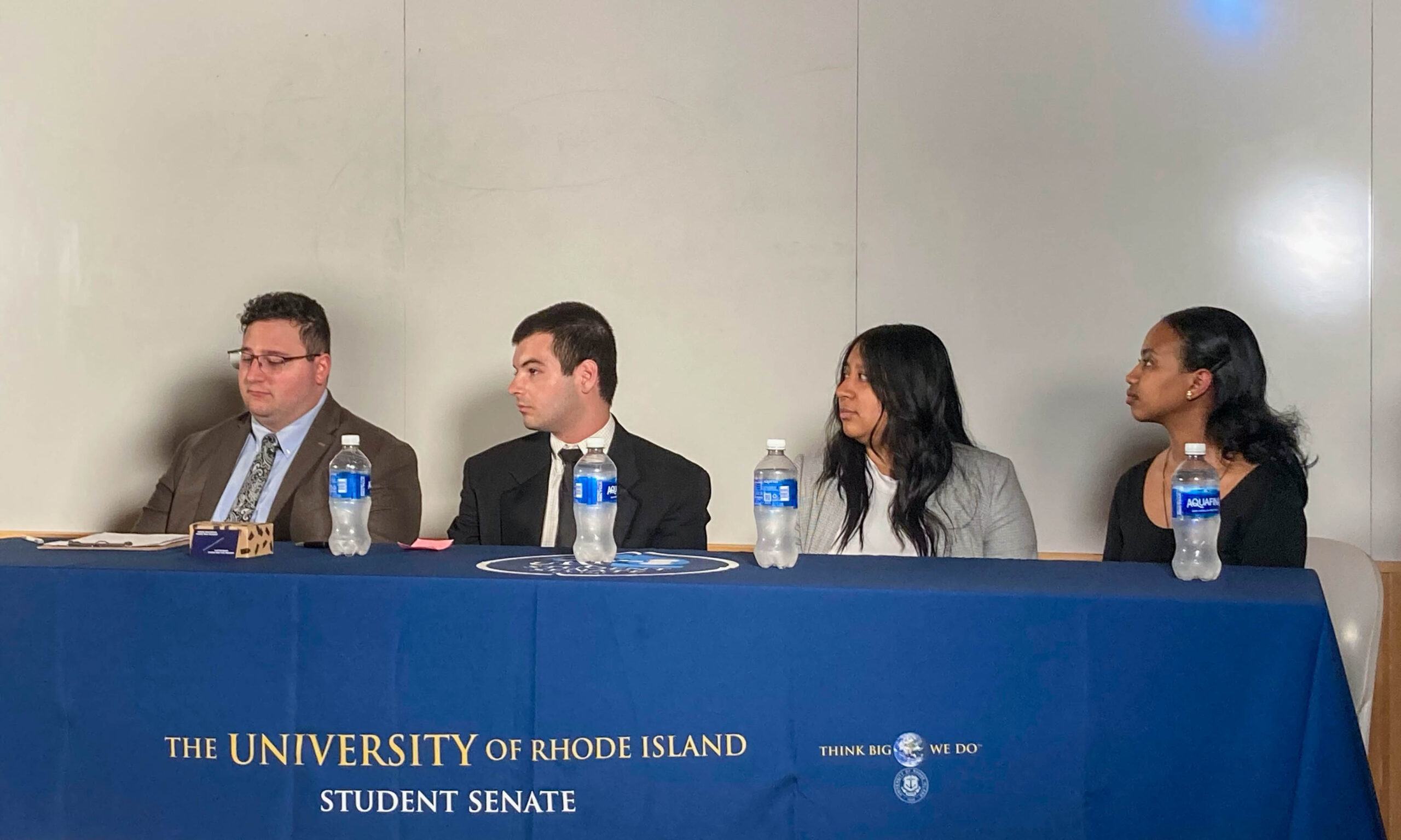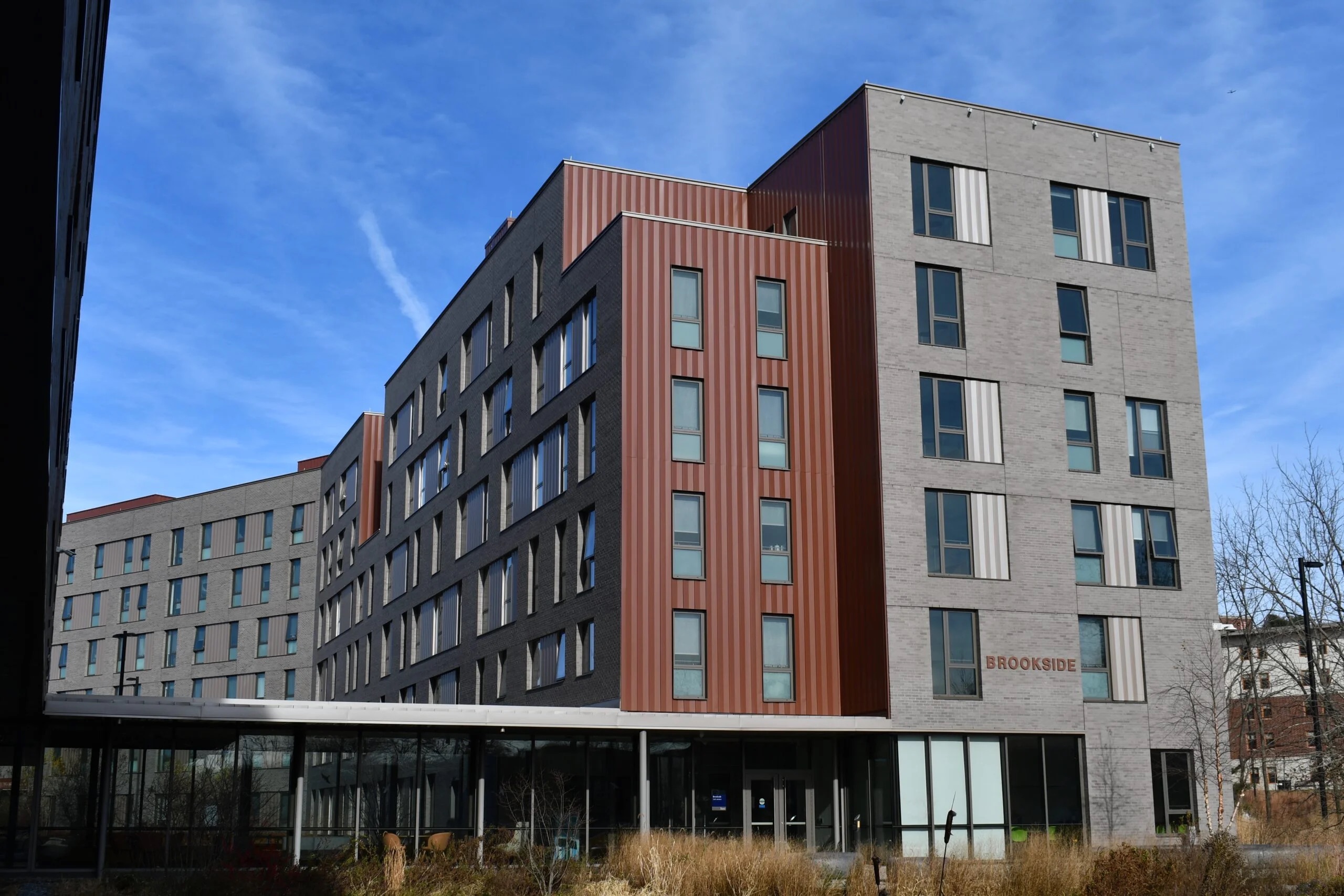Where does your dining hall food waste go? PHOTO CREDIT: Hannah Charron
The COVID-19 pandemic has generated more food waste at the University of Rhode Island, but faculty and staff are working to make the community more environmentally friendly.
Pierre St-Germain, director of Dining Services, said that a lot of time and energy goes into keeping Dining Services going. St-Germain oversees the entirety of URI’s dining and looks at issues like food waste. He said that in a normal year, Dining Services serves around 2 million meals.
However, COVID-19 has had an impact on Dining Services, according to St-Germain, and has made it more challenging to be environmentally sustainable.
“We’ve sort of held back on bringing out traditional plates and cups,” St-Germain said. “We’re using these disposable ones, which impedes our ability to truly take certain sustainable actions.”
However, he said that it is difficult to give an exact number in pounds of food waste from day-to-day.
“There’s a complete, I would say, randomness,” he said. “Although you can sort of track that you should be preparing [a given] amount because the last time it was prepared, if there was a last time, that we should try and track those numbers so that we know the next time so we’re not over-preparing.”
According to St-Germaine, this tracking limits waste, but when there is leftover food there are two routes Dining Services take to try to be sustainable.
First, St-Germain said any food that hasn’t been handled is donated to the Elisha Project, a food rescue organization that receives food from the University about once a week. According to The Center for EcoTechnology (CET), this amounts to 33,000 meals for the Elisha Project each year.
St-Germain said other food that students throw away that is not donated to the Elisha Project is composted. URI is partnered with The Compost Plant, the first industrial-scale compost facility in Rhode Island that turns food scraps into compost and soil, which comes about once or twice a week to take the university’s food waste. In a 2020 report about “Wasted Food Solutions: Spotlights from Providence,” the CET reported that 15 tons of food waste per year are diverted from complete waste as a result of this program.
Vanessa Venturini, a program leader for the URI Cooperative Extension and state program leader of the URI Master Gardener Program, said the Cooperative Extension’s organization, Food Recovery for Rhode Island, asks important questions about food waste.
“How can we look at the twin challenges of food waste and food insecurity,” said Venturini, “and find community-based, community-led solutions?”
The program, which is a six-week course open to anyone in Rhode Island, focuses on explaining the intersection between food waste and the environment. Members are then encouraged to use this knowledge to volunteer in community organizations.
In terms of sustainability at URI, Venturini thinks that the partnership with The Compost Plant is special and hopes the University builds on its composting programs in the future.
“It would be awesome to see, you know, that kind of thing happening right here on campus,” she said. “It requires like, infrastructure and will and a lot of planning, but I could see that being a really cool opportunity.”
St-Germain said that because of zoning licenses, the potential odor on campus and the need for constant surveillance of the composting site to turn the waste at least twice a day, composting on campus is unlikely.
Some other programs and plans have been created in recent years to make URI more sustainable, according to St-Germain. One such plan was to get rid of trays in the dining halls several years ago.
“We’re trying to discourage students from what’s referred to as ‘food hoarding,’” St-Germain said. “Basically, like going in, taking way more food than they’re going to consume on their trays and then throwing more than half of it away.”
Dining Services has also tried to find other long-term solutions, such as purchasing a digester, which is a giant shaker that tumbles the waste in an oxygen-free environment and composts at fast rates.
“It takes the composting process from like three to six months down to like three to six days,” St-Germain said. “It’s maybe a bit of an exaggeration, but not really far off.”
This idea is only in the brainstorming stage and would require a lot of money, time and effort, according to St-Germain. Despite this, he remains hopeful about the efficacy of this suggestion.
Venturini said that reducing food waste is a great place to start making changes so that there is no need to compost or throw away wasted food.
“If you’re reducing food waste, that means you’re reducing all of the wasted resources that get thrown away with your food,” Venturini said. “All of the upstream things in terms of the fertilizer and the transportation that it took to get from farm to plate, as well as the methane gas and greenhouse gasses that are released as the food decomposes in the landfill.”
She said decreasing food waste positively impacts local food systems, climate change issues, and food insecurity and students can be more conscious about how much food they throw away and get involved to make a change on campus.




